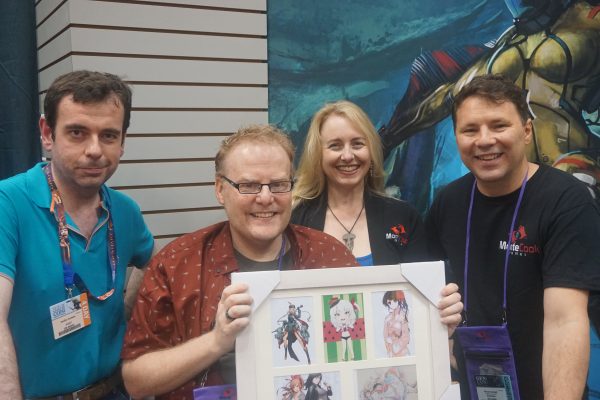Player Perspectives is a regular feature here on the Monte Cook Games website, penned by guest writers—players of Numenera, The Strange, and the Cypher System.
Along with the “violence should always be the last resort” warning at the beginning of a 40-page long combat chapter with dozens of weapons, almost every roleplaying game suggests the GM forget the rules for social skills that they have just explained, focusing instead on what people say at the gaming table, because it’s funnier and more interesting than rolling a bunch of dice. It’s good advice, which probably comes from the fact that, beyond combat and magic, first generation RPGs had rules for climbing, lockpicking and other “thief” skills, but that’s about it; character interaction with NPCs (and other PCs, for that matter) relied on what players said. It was a simple approach and worked fine.
However, as soon as later RPGs added social skills, ignoring them became a game balance issue. Selecting any skill (or class feature, advantage, etc.) has an opportunity cost; the player who chooses it forfeits other talents. It’s true that not every talent has equal value even in the best balanced games. But if players assume and the GM reinforces the notion that key social encounters must be roleplayed and the outcome will never be decided by the luck of the dice, social skills quickly become irrelevant or, at best, something used to avoid minor nuisances during the adventure, like a “kill random wandering monsters” kind of skill. Paradoxically, the latter option goes against classic good roleplaying advice: Roll only when the outcome is uncertain and important to the story. If a social encounter is trivial, why roll at all?
A random outcome seems unfair only because we tend to forget human beings are a mess. We have all kinds of prejudices and logical fallacies dancing around our little heads, so it’s hard to predict how a certain NPC would react to a player’s passionate plea or witty repartee. It’s even harder when we are dealing with non-humans. If the fey are truly alien beings, players shouldn’t feel safe when they bargain at the goblin market; not safer, at least, than they feel when they try to disarm a death trap or avoid the barbarian’s axe.
Beyond that, it’s worth noting players choose character abilities based on their expectations. When they invest heavily on social skills, they’re sending a message to their GM. Not only do they expect a game focused on social interaction; they want their characters to excel at it. This is especially true in games like the Cypher System, where characters don’t have a lot of skills but each of them has a big impact on lowering the difficulty of any related task.
Wish fulfillment is a big part of RPGs. The general who inspires his troops before the battle, the lawyer who changes the jurors’ mind with her vibrant speech, or the courtier who becomes the power behind the throne through poisoned rumors… All of them are fun, interesting and perfectly valid character concepts.
The fact that not every player is a good speaker (or a good liar) shouldn’t be an obstacle to play those archetypes. When someone wants to play a superhero, a wizard or a ninja, we don’t expect them to have mutations, spells, or martial arts training. Yet we insist on players talking their way out of trouble, whether their characters are good at it or not.
From my experience, both as player and GM, letting shy, stuttering, or just plain novice players solve interaction challenges through dice rolls not only removes a lot of pressure from them, but also gives them a chance to shine. It feels great, especially for those who are not used to it in real life. And I noticed something.
Because confidence is built on memories of past successes, even a luck-based success in an imaginary environment is registered as a success in our brains. So the more times shy players are allowed to roll for social skills, the bigger the chance they will try to roleplay next time. Roleplaying games are about imaginary worlds, sharing stories and having a good time together. For socially awkward players, the hardest part is breaking the ice. And sometimes you need a sharp, pointy object for that. Like a polyhedral die.
Teófilo Hurtado Navarro is a Spanish land registrar and speaker at several international law and economic forums such as CINDER, AECID and the World Bank. He also designed characters, written dialogue and composed songs for videogames such as Yangyang Mobile’s The Letter, Cotton Candy Cyanide’s Quantum Suicide, Black Chicken Studios’ Victory Belles and Igrasil Studio’s Bloody Chronicles, among others. His RPG library is full of oddities and hidden gems.
